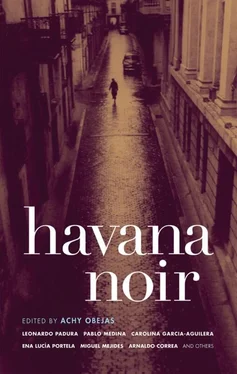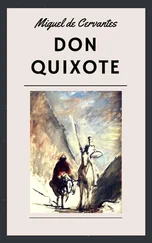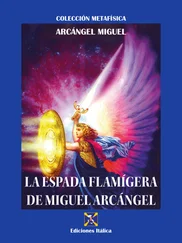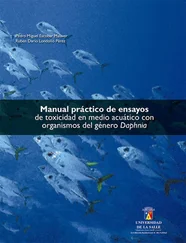Miguel Mejides - Havana Noir
Здесь есть возможность читать онлайн «Miguel Mejides - Havana Noir» весь текст электронной книги совершенно бесплатно (целиком полную версию без сокращений). В некоторых случаях можно слушать аудио, скачать через торрент в формате fb2 и присутствует краткое содержание. Город: New York, Год выпуска: 2007, ISBN: 2007, Издательство: Akashic Books, Жанр: Детектив, на английском языке. Описание произведения, (предисловие) а так же отзывы посетителей доступны на портале библиотеки ЛибКат.
- Название:Havana Noir
- Автор:
- Издательство:Akashic Books
- Жанр:
- Год:2007
- Город:New York
- ISBN:978-1-933354-38-5
- Рейтинг книги:4 / 5. Голосов: 1
-
Избранное:Добавить в избранное
- Отзывы:
-
Ваша оценка:
- 80
- 1
- 2
- 3
- 4
- 5
Havana Noir: краткое содержание, описание и аннотация
Предлагаем к чтению аннотацию, описание, краткое содержание или предисловие (зависит от того, что написал сам автор книги «Havana Noir»). Если вы не нашли необходимую информацию о книге — напишите в комментариях, мы постараемся отыскать её.
, authors uncover crimes of violence and loveless sex, of mental cruelty and greed, of self-preservation and collective hysteria, in a city characterized by ironic and wrenching contradictions.
Havana Noir — читать онлайн бесплатно полную книгу (весь текст) целиком
Ниже представлен текст книги, разбитый по страницам. Система сохранения места последней прочитанной страницы, позволяет с удобством читать онлайн бесплатно книгу «Havana Noir», без необходимости каждый раз заново искать на чём Вы остановились. Поставьте закладку, и сможете в любой момент перейти на страницу, на которой закончили чтение.
Интервал:
Закладка:
As the years passed and their situation became worse — their health was deteriorating, food was scarce — putting on such a dinner became more and more difficult, not just physically, but emotionally as well. Although the subject was not discussed, it was apparent that soon not all of them would be around for the following year’s meal. As each get-together might be the last one for any of the four, the dinner took on even greater significance.
One of the only legal means of acquiring food under the system instituted in 1962 was through government-issued ration cards. But acquiring seafood — absent on the ration card — was close to impossible. With the celebration held annually, each man’s time to serve the meal came around every four years. For the host, making sure the dinner was as perfect as conditions would allow took on an almost supernatural charge: the sense that their future, the future of their families and their homes, was at stake.
For each one of them, bringing the meal to the table was what pride and manhood required. How else could they tolerate their situations and live with themselves?
The year before, when it was Ricardo’s turn, he had served white flakes of meat picked from the poorest sort of fish scraps, with barely a bite of lobster. The quantity was so meager that there had only been a few spoonfuls of food on each plate. His guests, of course, had left bits of food on their plates — even though they had been close to famished — insisting they were so full that they could not possibly eat another bite. The Special Period was consuming them slowly, and not just physically.
Since women were not allowed at the dinners, María Eugenia had to rely on Luis’s descriptions of what transpired on those special nights. For the first few dinners, the ones that took place in pre-Castro Cuba, the wives were miffed — after all, they were friends as well — but as the years passed and the items for the meal became scarcer and scarcer, they recognized it was best for all concerned that they not insist. And it wasn’t just the difficulty of acquiring food that stopped their asking; it was also sad to see their husbands drunk, reliving their glorious youth while looking at photos of themselves when they were handsome and vigorous. The women, sometimes more practical than their husbands, preferred to avoid inflicting unnecessary pain on themselves — and that was a luxury they did not often have.
After the dinner the previous year at Ricardo’s house — as always, on August 10, the anniversary of the race — Luis told his wife that the host said he’d had trouble assembling all the seafood for the meal: Hell, for the first time in forty years there’d been just one tiny lobster served. María Eugenia became alarmed and made a few discreet inquiries as to what, exactly, Ricardo had had to do to acquire even the meager meal he’d served his friends. She was told that Ricardo had been forced to sell his beloved portrait of the great Cuban patriot, José Martí — a painting that had been in his family for generations — to get the money for the meal. This news had so upset her that she locked herself in her room and cried copiously, an indulgence she thought she had given up years ago. If María Eugenia had ever needed proof of how much the dinners meant to her husband and his friends, this sad event provided it.
This year it was Luis’s turn to host the meal. For months, he had agonized about how and where he was going to find the seafood. Time was running out. With one week remaining before the dinner, the only item that Luis had been able to procure was rice. He wasn’t too worried about the eggs for the flan, as he had a neighbor who raised hens and sold eggs on the black market, so he could probably buy some from her.
As a longtime veteran of the ration system, Luis hadn’t been surprised that neither he nor María Eugenia nor Eladio had been successful in finding the other necessary items — scarcity was the norm and not the exception in the Special Period.
He had once heard that an American economist calculated that a ration book’s monthly allotment would last — that is, if all of the items were available, an event that was a rarity — between a week and ten days. This same economist had compared a citizen of Havana’s pre — Special Period monthly beef allotment, a half pound of meat, to a McDonald’s Big Mac. Now, three years after the Special Period had begun, even that meager amount seemed an overabundance. Few in Havana had tasted meat in three years — at least not from the ration book.
When the Rodríguez-López family had needed anything, they would sell some of their belongings: jewelry, furniture silver, clothes, etc. After forty years of doing that, they were out of things to sell, and had so few possessions left that they often worried how they could live out their lives.
Their old friends who were parents — those few who had chosen to stay in Cuba — were better off, as they had children who looked out for them. The fortunate ones were those who had sons and daughters outside Cuba to send them money — cash — which made all the difference. Roberto, Ricardo, and Eduardo were among these fortunate few, which was why — although they’d had difficulty giving the yearly party — they were still able to procure through the black market enough to make a minimal meal. But now, even they had trouble paying for seafood, as it was nearly impossible to find — and the fines for getting it illegally were exorbitant.
Luis had too much pride to let his friends know of his difficulty. Four years earlier, when it had been his turn to host, he’d been forced to sell his gold wedding ring — the last of his jewelry. The Patek Philippe watch that had belonged to his grandfather had been sold years before that. María Eugenia still had her wedding ring, but they had vowed that would only be sold if they were truly starving.
As the months passed and the date for the dinner approached, Luis supposed that he could either serve a different main course or cancel the dinner altogether. But being able to serve his lifelong friends the exact same meal they had been eating for the past forty-two years had become as important to him as breathing. And he did not want to be like Ricardo, who didn’t have enough food for his guests. It was all or nothing for Luis.
María Eugenia and Eladio watched helplessly as Luis descended into a deep depression. Nothing they said or did could pull him out of it. The situation had become so dire that now even María Eugenia, who seldom left the house, had ventured out and visited a couple of long lost friends and acquaintances to see if they might know of any source of seafood, even remnants of the cheapest of bottom fish. No one knew where to look, which couldn’t have been surprising to her, as everyone was in the same situation.
María Eugenia still had her gold wedding ring, but because of the pact that she and Luis had made, she could not sell it (though being a realist, she knew that day was not far off). Although it would have saddened her to part with it — she had sold her diamond engagement ring years before — she was so worried about Luis that she would have sold the gold band in a heartbeat. As the time for the dinner grew closer, María Eugenia repeatedly offered to do exactly that, but Luis would not even contemplate it. For him, selling the ring would be admitting there was no hope left, none at all. Castro would have essentially stolen the symbol of his marriage, and this was unacceptable to him.
Eladio scrambled to see what he could do to help his employer, and he too came up empty. Unlike the couple, he had no valuables to sell, but throughout the years he had made a bit of extra money here and there by working at odd jobs — running errands, fixing appliances, repairing old machines, so he had been able to contribute a small amount of cash to his keep. But now, because not even his considerable skills and ingenuity could keep forty-year-old machines running, even that little money had dried up.
Читать дальшеИнтервал:
Закладка:
Похожие книги на «Havana Noir»
Представляем Вашему вниманию похожие книги на «Havana Noir» списком для выбора. Мы отобрали схожую по названию и смыслу литературу в надежде предоставить читателям больше вариантов отыскать новые, интересные, ещё непрочитанные произведения.
Обсуждение, отзывы о книге «Havana Noir» и просто собственные мнения читателей. Оставьте ваши комментарии, напишите, что Вы думаете о произведении, его смысле или главных героях. Укажите что конкретно понравилось, а что нет, и почему Вы так считаете.












